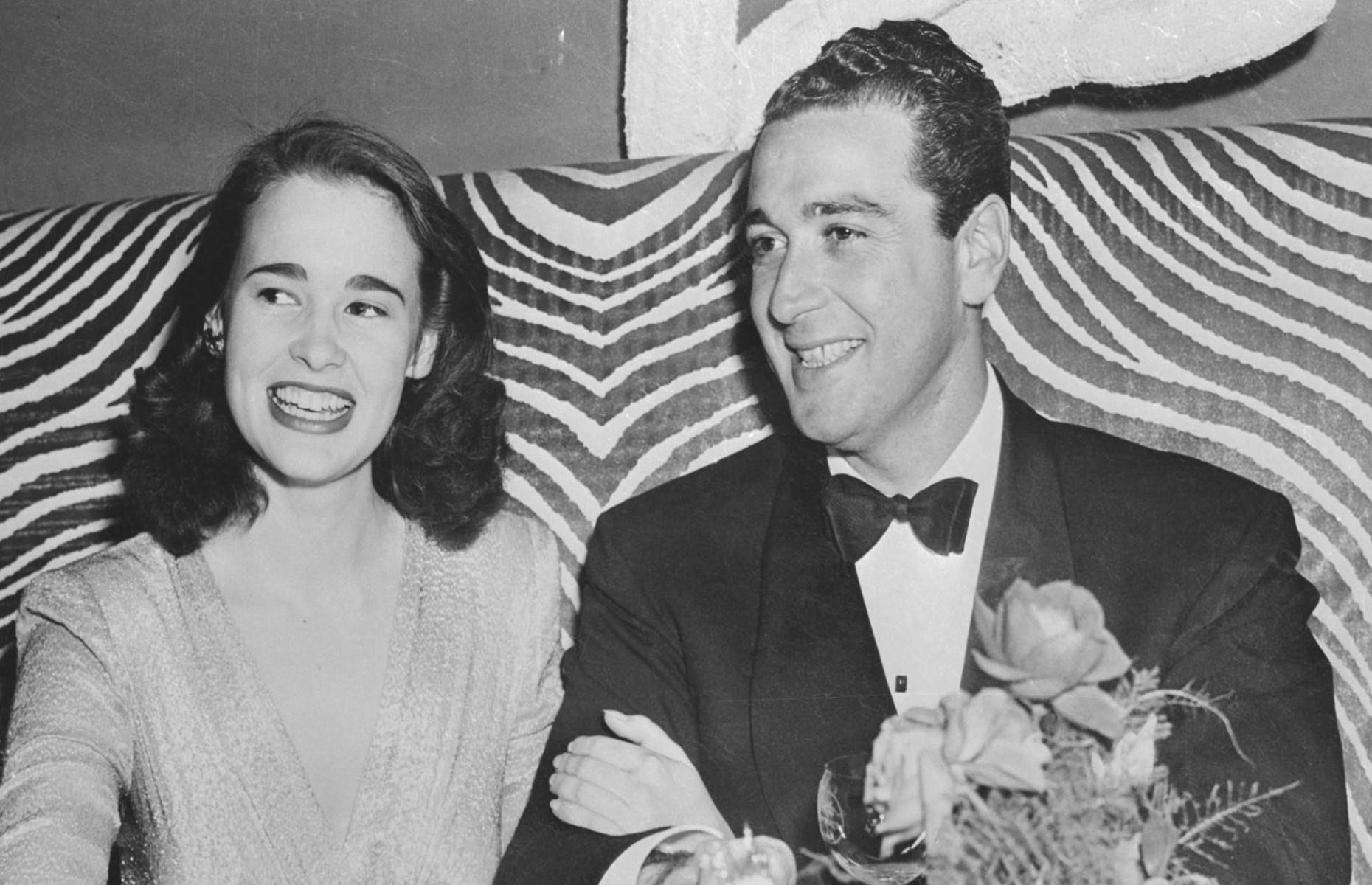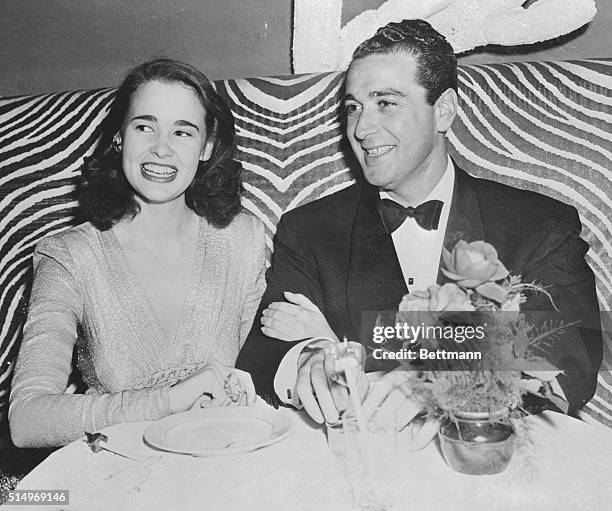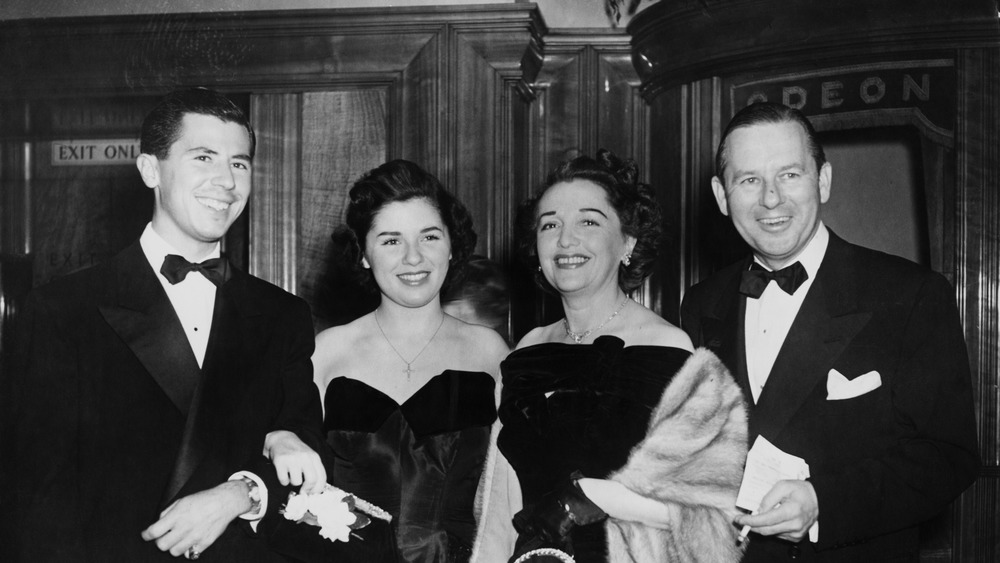Vanderbilt Family - The American Dynasty's Rise And Fall
The Vanderbilt family, a name that still rings with tales of immense riches and grand living, once held a position of truly vast influence in American history. They were, in some respects, the very definition of a powerful American dynasty, making their initial fortune through shipping and then, as a matter of fact, through the burgeoning railroad business in the 1800s. This family's journey, from humble beginnings to being counted among the richest people on the planet, is a story that, you know, captures a lot of attention.
Their story, too it's almost, shows how a family could build an empire that stretched across the East Coast and beyond, leaving behind a trail of incredible achievements and, well, some of the most luxurious homes anyone could imagine. These grand estates, like the famous Biltmore, were not just houses; they were, in a way, statements of their power and their place in society, showing off what they had managed to put together.
Yet, like many stories of extreme wealth, the Vanderbilt family's tale also includes a dramatic shift. Despite their incredible start, they eventually saw much of their fortune dwindle, fading from the social spotlight they once dominated. This makes their history, you know, a pretty compelling look at how business savvy, personal disagreements, and the pressures of society can shape a family's destiny across generations, even for those who seemed to have everything.
- How Old Is Sean Penn
- Shae Mccombs Husband
- Sondra Blust Onlyfans Leaked
- Elad Gil Nationality
- Sondra Blust Only Fans Free
Table of Contents
- The Vanderbilt Family Story - From Humble Beginnings to Great Wealth
- How Did the Vanderbilt Family Get So Rich?
- What Happened to the Vanderbilt Family's Money?
- Grand Houses and Lavish Living - The Vanderbilt Family's Homes
- Were There Scandals Within the Vanderbilt Family?
- The Vanderbilt Family Legacy - Beyond the Fortune
- Who Are Some Famous Vanderbilt Family Members Today?
- The Vanderbilt Family - An Enduring American Story
The Vanderbilt Family Story - From Humble Beginnings to Great Wealth
The tale of the Vanderbilt family really begins with Cornelius Vanderbilt, often called "the Commodore." He was the one who, you know, got the whole thing started. His journey began by working with his father in business, and from there, he moved up the ladder, taking on important roles in the water trade that happened inside the country. This early work gave him a strong foundation, teaching him a lot about how things moved and how to make a profit from it, which, basically, set the stage for everything else.
Then, Cornelius turned his attention to the railroad business, which was, in fact, growing very quickly at that time. He started by purchasing smaller railroad companies, slowly but surely gathering them up. Before long, he held control over nearly all the train travel going in and out of New York City. This control wasn't just about making money; it also, you know, helped change the way places were connected and how people got around. His huge amount of money helped to make train procedures the same everywhere, set up schedules that worked for everyone, and, as a matter of fact, made the whole system work much better, which was a pretty big deal.
This shrewd business sense meant that the Vanderbilt family, thanks to Cornelius, became incredibly well-off. They were, in some respects, considered the richest family in the entire world for a time. Their wealth came from these shipping and railroad ventures, which, apparently, expanded into many other kinds of work and even giving money to good causes. This initial period of building up the fortune is a really key part of understanding the family's place in American history, as it truly laid the groundwork for their influence and their place in society.
Cornelius "Commodore" Vanderbilt - Key Details
| Born | May 27, 1794 |
| Died | January 4, 1877 |
| Origin of Fortune | Shipping and Railroads |
| Estimated Estate at Death (1877) | $100 million |
| Estimated Estate Today (equivalent) | Approximately $2.5 billion |
| Family's Peak Fortune (equivalent) | Could be as high as $185 billion today |
How Did the Vanderbilt Family Get So Rich?
The core of the Vanderbilt family's vast wealth, as I was saying, came directly from Cornelius Vanderbilt's smart moves in business. He started out in shipping, moving goods and people across water, which was, you know, a pretty important way to make money back then. But his real genius, you could say, showed itself when he saw the huge potential in railroads. He wasn't afraid to put his money into this growing field, and he did so in a way that, literally, changed the face of American business.
Cornelius didn't just invest a little bit; he actually worked to gain control of large parts of the railroad system. This allowed him to set the rules, essentially, for how trains operated, making things more organized and, as a matter of fact, more profitable. His ability to connect different lines and make them work together meant that his businesses became incredibly valuable. When he passed away in 1877, his personal fortune was valued at a staggering $100 million, which, when you think about it, would be like having around $2.5 billion in today's money. That's, you know, a whole lot of cash for one person.
At its highest point, the Vanderbilt family's collective fortune was truly something to behold. Some estimates suggest that the amount of money they had at their peak could be equal to an astonishing $185 billion in today's terms. This kind of wealth, quite honestly, gave them immense power and influence over many aspects of American life. They were able to do things, build things, and, you know, live in a way that very few people could ever even dream of, making them a central part of the Gilded Age story.
What Happened to the Vanderbilt Family's Money?
Despite their incredible start and the massive fortune Cornelius Vanderbilt built, a pretty interesting turn of events happened with the family's money. By the early 1900s, it seems, much of that vast wealth had, in a way, slipped through their fingers. The family that was once known for having more money than almost anyone else began to fade from the top social circles, which, you know, must have been quite a change for them.
There are a few reasons why this happened, according to the stories. One big part was the way later generations of the family spent their money. They had, apparently, a very lavish lifestyle, building huge houses and throwing grand parties, which, as you can imagine, cost a lot. It wasn't just about spending, though; it also had to do with their business skills, or perhaps, the lack of focus on the business side of things that their ancestors had. The drive to keep growing the fortune seemed to lessen over time, so, too it's almost, the money started to go out faster than it came in.
The idea that they "squandered" their wealth is a common theme when talking about the Vanderbilt family's decline. This suggests that the money wasn't just spent; it was, in some respects, not managed or grown in the way it could have been. Personal disagreements and the pressures of being in such a public and wealthy family also played a part, leading to decisions that, quite honestly, contributed to the fortune's shrinking over several generations. It's a tale that, you know, serves as a bit of a cautionary story about inherited wealth.
Grand Houses and Lavish Living - The Vanderbilt Family's Homes
One of the most talked-about aspects of the Vanderbilt family's time at the top was, obviously, the truly grand houses they had built. These homes weren't just places to live; they were, as a matter of fact, huge displays of their wealth and their standing in society. They had these incredible properties all along the East Coast and even further afield. These grand estates served different purposes; some were for summer getaways, places where they could escape the city heat, while others were their main places of residence, where they lived year-round, which, you know, really shows the scale of their holdings.
The sheer architectural beauty and the historical weight of these places still capture people's interest today. Think about places like the famous Biltmore in North Carolina, which before it became a popular spot for visitors, was simply home to a branch of the Vanderbilt family. Then there were the mansions they put up on Fifth Avenue in New York City, which were, literally, palaces in the middle of the city. And, of course, they had their luxurious summer cottages in Newport, Rhode Island, where they would spend their warmer months, living in a way that was, you know, pretty much unheard of for most people.
Exploring these homes gives us a pretty good idea of just how lavish their lifestyle was. There are, apparently, at least ten of these grand Vanderbilt mansions that still stand and continue to fascinate people with their splendor. Each one tells a bit of a story about the family's tastes, their desire to show off their success, and the sheer amount of money they were willing to spend on creating these incredible spaces. They were, in a way, monuments to their power and their place in the world, showing everyone just how much they had, which, you know, was a lot.
Were There Scandals Within the Vanderbilt Family?
Like many families with a lot of money and a high profile, the Vanderbilt family also had their share of public disagreements and, you know, what people might call scandals. One of the most talked-about events was the divorce of Alva and William K. Vanderbilt. When the news of their separation became public at the time, it caused, quite honestly, a huge stir. According to one expert, a lot of people's jaws simply dropped when they heard about it, which, as a matter of fact, tells you just how shocking it was for society back then.
This particular event wasn't just a private matter; it was, in a way, a very public display of personal conflicts within one of the country's most prominent families. The sheer amount of attention it received shows how closely people followed the lives of the super-rich and how, basically, any crack in their perfect image became big news. These personal conflicts, you know, weren't just isolated incidents; they were often intertwined with the social pressures that came with being a Vanderbilt, with all the expectations and scrutiny that came with their name.
These kinds of public happenings, while perhaps not directly causing the family's fortune to shrink, certainly added to the narrative of their eventual decline from the very top of the social ladder. They highlighted the human side of this powerful family, showing that even with immense wealth, they faced challenges and disagreements, just like anyone else, perhaps even more so because of the public eye constantly watching them. It's a reminder that, you know, money doesn't solve every problem, and sometimes it can even create new ones.
The Vanderbilt Family Legacy - Beyond the Fortune
While the story of the Vanderbilt family often focuses on their immense wealth and its eventual decline, their influence extends far beyond just money. They were, in some respects, also known for their efforts to give back to the community, engaging in what's called philanthropy. This means they used some of their resources to support good causes, which, you know, is a pretty important part of any powerful family's history. These acts of giving helped to shape various institutions and organizations across the country, leaving a mark that lasted longer than just their financial peak.
However, as their wealth began to spread out and, frankly, diminish over generations, the family's presence on the social scene also changed. They moved from being the absolute center of attention, the people everyone looked to for trends and influence, to, in a way, fading into the background. This wasn't an immediate thing, but rather a gradual shift as new families rose to prominence and the old money, like the Vanderbilts, found their spotlight dimming. It's a natural part of history, really, how fortunes and social standing can shift over time.
Despite this shift, the Vanderbilt name, you know, still carries a certain weight in America. It's legendary, really. Even though the family's fortune has nearly disappeared from its original scale, the stories of their rise, their incredible achievements in business, and their lavish lifestyle continue to be told. This enduring fascination with their history shows that their legacy isn't just about how much money they had, but also about the larger-than-life characters and the significant role they played in shaping the country during a particular period, which, basically, makes them a lasting part of our collective memory.
Who Are Some Famous Vanderbilt Family Members Today?
Even though the original vast fortune of the Vanderbilt family mostly disappeared, the name itself has continued to be associated with interesting people, especially in later generations. For instance, the third generation, following Cornelius and William Henry Vanderbilt, saw three of William Henry's four sons take the lead. Of these three, Cornelius, the grandson, was, apparently, by far the most dedicated to trying to keep the family's standing strong and moving forward, which, you know, shows a bit of that old drive.
Perhaps some of the most well-known members of the Vanderbilt family in more recent times are Gloria Vanderbilt and her son, Anderson Cooper. What's really interesting about them is that they didn't rely on the old family money to make their mark. Instead, they built their own wealth and fame through their own efforts and talents, which, as a matter of fact, is a pretty inspiring twist on the family's story. Gloria Vanderbilt was a celebrated artist and designer, and Anderson Cooper is, obviously, a very prominent journalist for CNN, known for his work in news reporting.
Anderson Cooper, for example, has an estimated personal net worth of around $50 million in 2024, which he earned through his career. This really highlights how the family's legacy has changed. It's no longer just about inherited riches but about individual achievement and making a name for oneself in different fields. The lineage from Cornelius Vanderbilt to people like William Kissam Vanderbilt II and down to Gloria and Anderson shows a range of people, including entrepreneurs and those who gave to good causes, who have, you know, truly made an impact on the country's history in their own ways, even as the nature of the family's "wealth" shifted.
The Vanderbilt Family - An Enduring American Story
The Vanderbilt family, a name that still resonates, stands as a powerful example of an American dynasty that grew from humble beginnings to a position of incredible wealth and influence. Their story, which started with Cornelius Vanderbilt's work in shipping and then railroads, shows how one person's drive could create a fortune that, in its time, was unmatched. They built grand homes, lived lives of great luxury, and, you know, truly shaped a period of American history.
However, the family's journey also serves as a look at how fortunes can change. Over generations, much of the initial wealth was spent, and the family's social standing shifted. Yet, their story continues to be told, remembered for their achievements, their personal struggles, and their lasting impact. From the founding Commodore to modern figures like Anderson Cooper, the Vanderbilt family's tale is, in a way, a pretty complete picture of the American experience, showing both the heights of success and the natural changes that come with time, which, you know, is a lot to think about.
- Tim Allen Net Worth
- Maya G Viral Video Sex
- Kyler Murray Wife
- How Old Is Sean Penn
- Has Lil Tecca Been To Jail

The rise and fall of the Vanderbilt family dynasty | lovemoney.com

61 Gloria Laura Vanderbilt Photos & High Res Pictures - Getty Images

The Tragic Real-Life Story Of The Getty Family